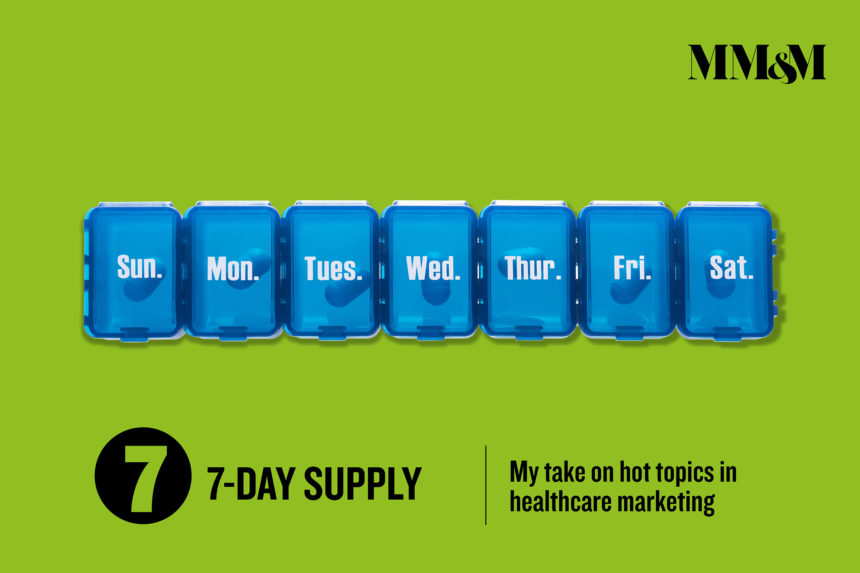When two B2B marketing research vendors, both heavyweights within the life science industry, tied up last week, the particulars of the transaction made me question whether these firms are drawing value commensurate with their lofty contributions.
Clarivate Analytics is buying Decision Resources Group (DRG) in a $950 million cash-and-stock deal set to close this quarter. The transaction, subject to shareholder approval, was announced last Friday.
Marketing research is a big business but can be hard to grow, so consolidation makes sense. Clarivate specializes in the early stage — pre-clinical and clinical, regulatory review and business development. Given DRG’s strengths in the commercial aspects of pharma products, the acquisition is complementary and positions Clarivate to support customers across the entire drug, device and med-tech lifecycle, the firm said in a statement.
DRG has deep, tenured relationships with the top-50 pharma companies, 19 of the top med-tech firms and eight of the top 10 payers/providers. 99% of its business has been renewing. Its revenue breaks down as 42% subscription, 27% re-occurring and 31% transactional from such areas as consulting.
This deal also marks an exit for Piramal Enterprises — or rather for its wholly owned subsidiary PEL DRG Dutch HoldCo BV, which bought DRG in 2012 for $650 million.
In an interview shortly after the sale, Ajay Piramal, chairman, Piramal Group, stressed the ability to get a good valuation as motivating his decision to divest DRG. “At $950 million,” he said, “this is a five-times multiple of [DRG’s] sales,” which came in at $207 million in 2019, a 9% increase vs. 2018.
That means Piramal made back about $300 million on the sale. Compared to the billion-dollar valuations seen in, say, digital health and biotech, that sounds comparatively small. Clearly, B2B marketing research vendors don’t get as much attention.
Yet the work of pharmaceutical marketing researchers, whether they be analytics and secondary research companies like Clarivate and DRG or custom primary research businesses, is often pivotal to the success of a drug, device or diagnostic launch. Given a company as highly regarded as DRG, I would have expected a bigger valuation.
Consider how Jerre Stead, the Clarivate Analytics executive chairman and CEO, characterized the purchase: “We’re fortunate such a strong asset became available, and we were able to acquire it opportunistically,” Stead said on a call with investors.
He went on to reiterate what he saw as a “very attractive price.” Did the CEO just get a steal of a deal?
In one way, he did. Clarivate noted that the life science analytics market is estimated to grow at a 12% CAGR, from $19 billion this year to $33 billion in 2024. By comparison, DRG is expected to generate returns of 9% this year — well below that market growth rate, signaling room for expansion. Clarivate’s CFO added that he expects DRG eventually will achieve “sustained double-digit growth rates.”
There certainly is plenty of opportunity. Global prescription drug sales (per the latest Evaluate figures) are forecast to grow at a 6.9% CAGR to $1.18 trillion by 2024, driven by rare disease drugs, immuno-oncology and novel technologies like cell and gene therapies.
In the information/computing age when so much more of a drug’s success comes down to knowledge, shouldn’t the knowledge providers have a piece of the larger valuations, just like the scientists?








